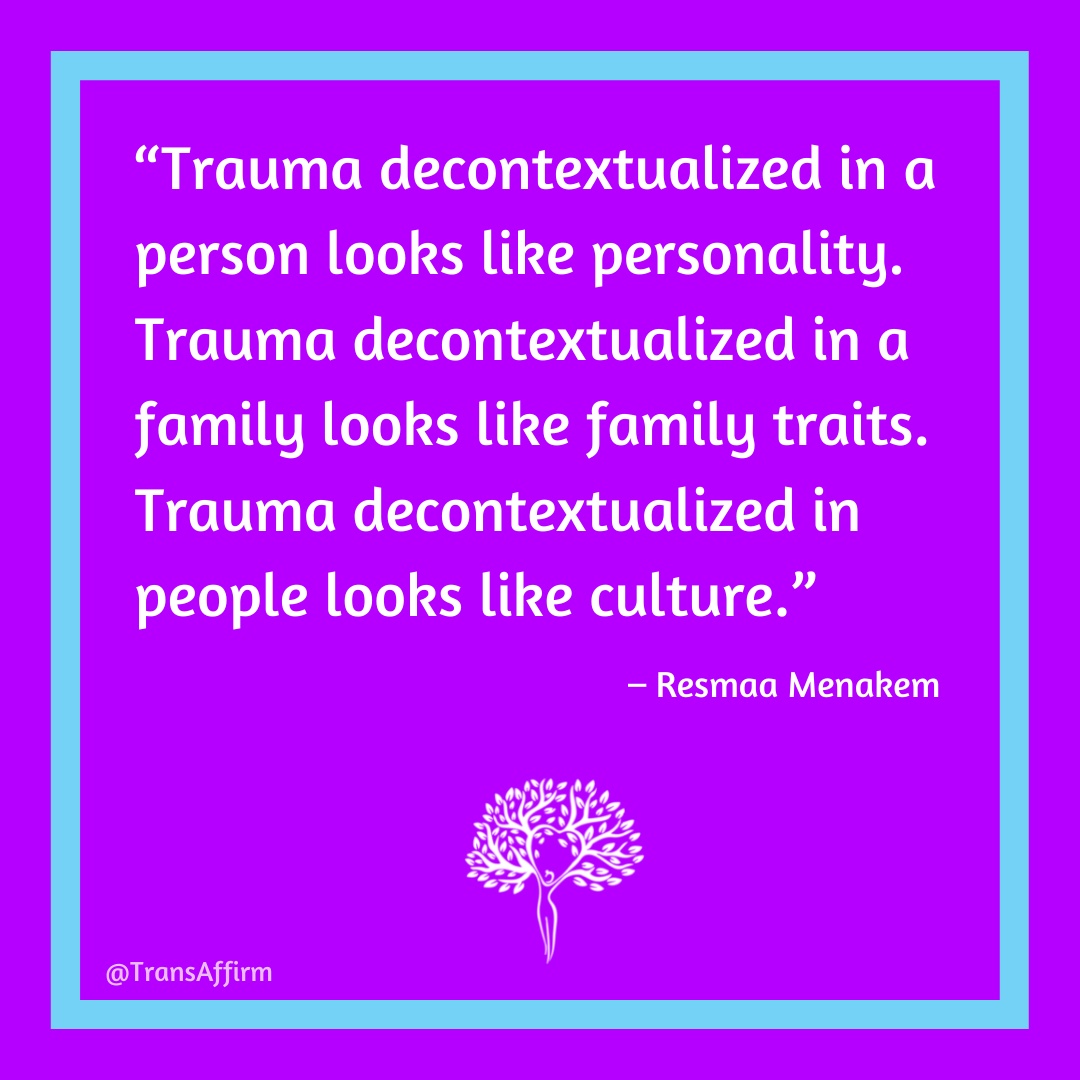Quote by Resmaa Menakem

2/19 quote “Trauma decontextualized in a person looks like personality. Trauma decontextualized in a family looks like family traits. Trauma decontextualized in people looks like culture.”
Resmaa Menakem is an author, anti-racist educator, somatic therapist. He is the author of My Grandmother’s Hands: Racialized Trauma and the Pathway to Mending Our Hearts and Bodies.
When he speaks of trauma decontextualized in a person looks like trauma, he is talking about the ways in which we pathologize trauma survivors. One way this shows up is the diagnosis of Borderline Personality Disorder, which so often finds its roots in trauma. We need to acknowledge what a person has been through and how that might be a causative factor in how they think, behave and respond. Otherwise we are blaming the victim.
When he speaks of what decontextualized trauma in families and people he is talking about the ways in which we blame families and people for how they act and react when we refuse to look at the ways in which they have been traumatized by others, and by systems of oppression, and how this trauma is passed down through generations.
The impacts of trauma on specific people, families, and cultures is profound and needs to be acknowledged to be healed. We need to learn about our actual past, even when it is painful or causes us discomfort, because otherwise we are doomed to repeat the past.
White discomfort should not be prioritized over the on-going and pervasive discomfort and discrimination BIPOC people face and have faced for centuries.
As a White woman, it is my responsibility to look at the historical past, my personal past, the ways in which I have been harmed and benefitted by the systems in place and learn to do better, to not participate in the harm being done, and to start taking an active approach to dismantling oppressive systems.










